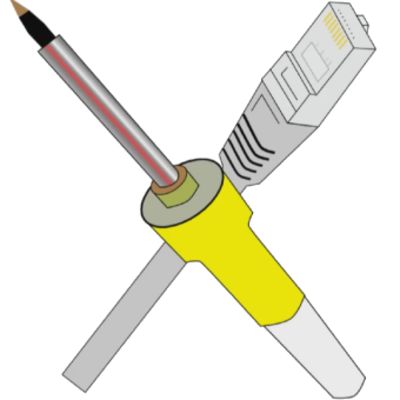BitBastelei ist ein wöchtentlicher Video-Podcast mit Basteleien aus Elektronik und IT
https://www.adlerweb.info/blog
episode 305: BitBastelei #305 - EC-Karten-Terminal-Recycling: LCD&Keypad an ESP8266
Vor einiger Zeit hatte ich ein altes EC-Kartenterminal zerlegt und schon angemerkt, dass man viele der Bauteile recyclen kann. Dieses mal geht es um das Display sowie die Tastatur – eigentlich eine einfache Aufgabe. Eigentlich.
Links- 00:00 EFTPOS
- 08:43 i2c_port_address_scanner.ino
- 09:21 https://github.com/tronixlabsAU/LCDbackpack
- 10:17 https://www.instructables.com/id/I2C-LCD-on-NodeMCU-V2-With-Arduino-IDE/
- 11:20 https://github.com/fdebrabander/Arduino-LiquidCrystal-I2C-library
- 19:40 ICS Expander MCP25S17
- 21:00 https://github.com/n0mjs710/MCP23S17
https://github.com/adlerweb/MCP23S17
Hinweis: Der bei 19:40 gezeigter GPIO-Expander wurde mir seinerzeit von ICStation.com zur Verfügung gestellt.
